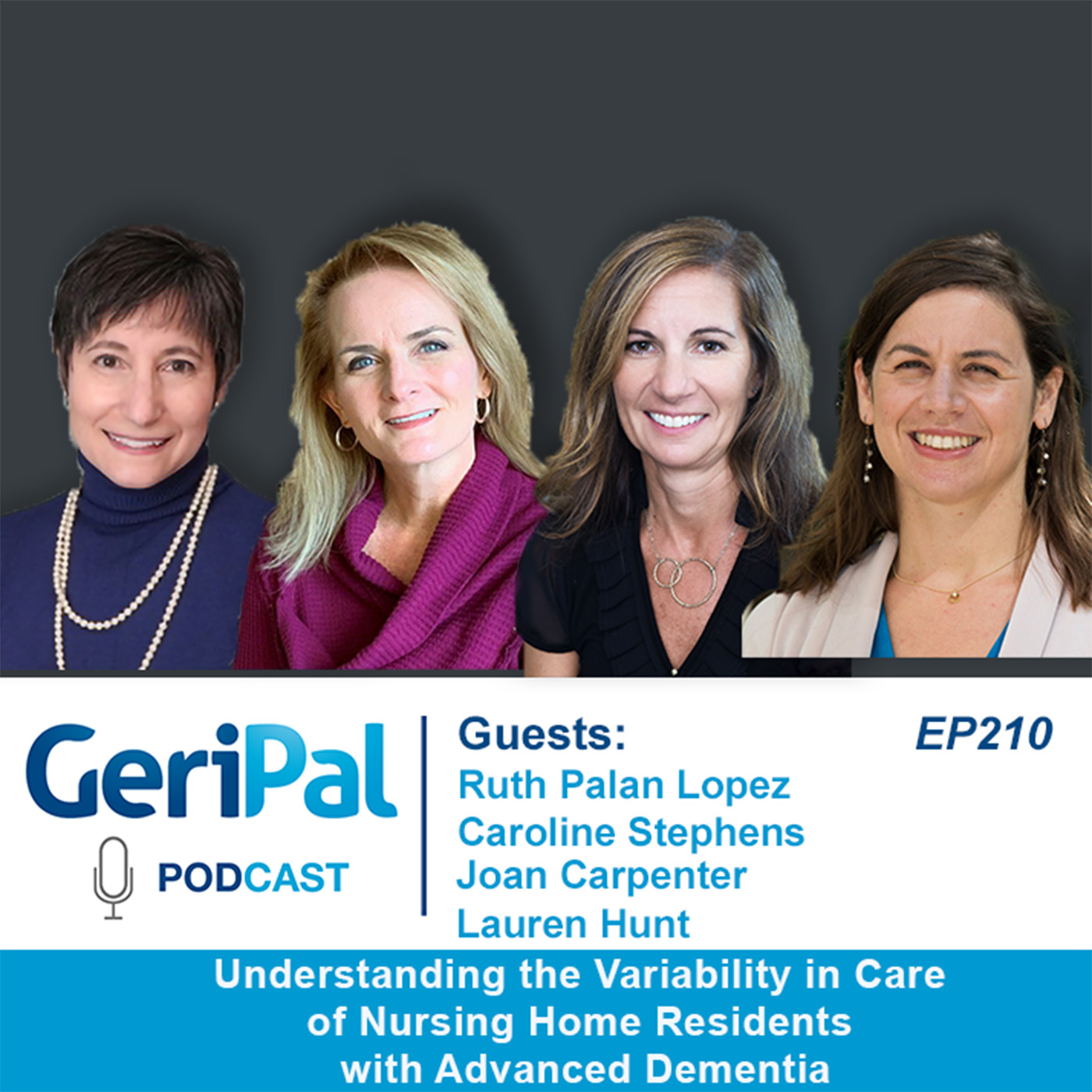Understanding the Variability in Care of Nursing Home Residents with Advanced Dementia

If you develop dementia, odds are you will spend the last months to years of your life in a nursing home or assisted living facility. \xa0 While we like to think about how our goals and preferences will influence what that life looks like, including whether you will get potentially burdensome interventions, your fate is probably influenced more by factors like where you live and what nursing home you happen to end up in.\xa0
On today\u2019s podcast we dive into drivers of invasive procedures and hospitalizations in advanced dementia by talking to some pretty brilliant nursing and nurse practitioner researchers focused on dementia, geriatrics, and palliative care in nursing homes: Ruth Palan Lopez, Caroline Stephens, Joan Carpenter, and Lauren Hunt.
We start off discussing the findings of Ruth Palan Lopez's publication in JAMA IM on the ADVANCE study.\xa0 This study explored nursing home organizational factors and staff perceptions that are associated with the variation in care for residents with advanced dementia.\xa0 Now when I say variation, I\u2019m not talking about small little clinically questionable variations.\xa0 I\u2019m talking about some nursing homes with no residents with advanced dementia being tube fed, and some with nearly half of their residents with advanced dementia being tube fed.\xa0\xa0
We go on to talk about other findings of this study including that staff in all nursing homes expressed assumptions that proxies for Black residents were reluctant to engage in ACP and preferred more aggressive care, issues with the skilled nursing facility benefit (\u201crehabbing to death\u201d), the palliative care needs of nursing home residents, and so much more.
For a deeper dive, check out some of these other studies and resources we talked about in the podcast:
- The Influence of Nursing Home Culture on the Use of Feeding Tubes.\xa0 Archives of Internal Medicine 2010
- The Lived Experience of Providing Feeding Assistance to a Family Member with Dementia
- Rehabbed to Death. NEJM
- Palliative Care in Nursing Homes: Discussion of a Multinational Trial with Lieve Van den Block
- A Podcast with Caroline Stephens about her publication in JAGS where she studied palliative care-eligibility and POLST completion
\xa0